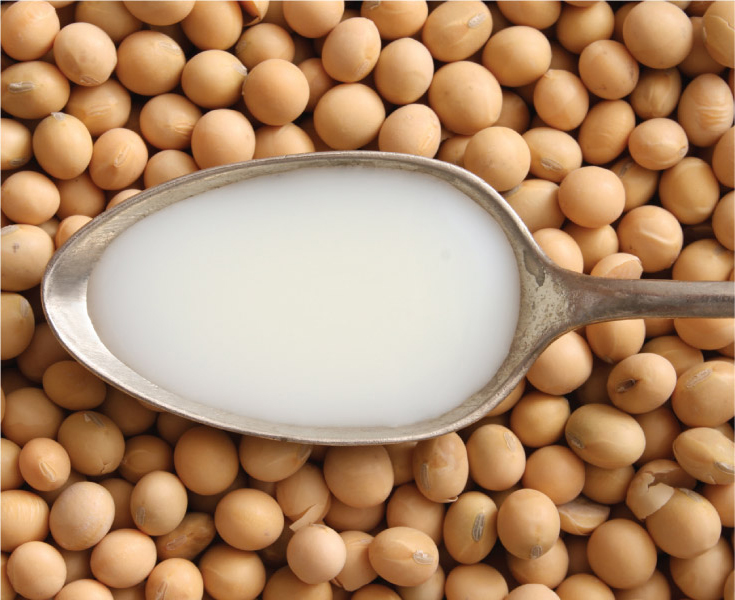Soy Milk Nutritional
Benefits: Why Choose
Soy Milk?
The plant-based milk market is growing at a steep rate. Experts predict that the market value of plant-based milk will grow throughout the next decade until it’s worth nearly 35 billion in 2033. The increased demand for plant-based milk is caused by a variety of factors, including an increase in flexitarian diets and dairy allergies. While there are a variety of plant-based options to choose from in the grocery store, soy milk is the most comparable to cow’s milk in terms of nutrition and protein. Learn about the benefits of soy milk nutrition and how it compares to other plant-based beverages.
Is Soy Milk
Good For You?

Soy milk has numerous nutrition benefits
that make it a great alternative to dairy milk
Protein content:
Soy milk is a good source of protein. It contains all 9 essential amino acids, making it a complete protein and the most comparable to cow's milk in terms of protein content
High-quality protein:
In addition to providing nearly as much protein as cow’s milk, the quality of soy milk protein is similar to the quality of cow milk protein in terms of digestibility and amino acid content.
Anti-inflammatory properties:
Soy foods, such as soy milk, are fortified with omega-3 and omega-6 fatty acids, which have been associated with reduced risk for certain chronic diseases and contain anti-inflammatory properties..
Good fats:
In addition to providing nearly as much protein as cow’s milk, the quality of soy milk protein is similar to the quality of cow milk protein in terms of digestibility and amino acid content.
Potassium:
Soy milk naturally has potassium—an essential mineral that every tissue in the body needs. Potassium is important for heart health.

What is Fortified Soy Milk?
Fortified soy milk is a great choice as it may help boost your vitamin and mineral intake. Most soy milks on the market are fortified with additional vitamins and minerals, including calcium, vitamin D, and vitamin A in amounts similar to cow’s milk. If you’re replacing animal sources with plant-based alternatives, opting for fortified products can be a good choice to meet your nutritional needs.
While some dark, leafy greens contain calcium, many individuals need to supplement their calcium intake if they are limiting their intake of traditional dairy. Fortified beverages, like soy milk, can help do so. And while vitamin D can be obtained through sun exposure, you can also boost your vitamin D intake with fortified soy milk. Fortified soy milk also contains vitamin A, which supports eye health and has a preventative effect on certain diseases.
See the benefits of soy milk for both your health and our planet.
Soy Milk vs. Other Plant-Based Milks
Many dietitians recommend soy milk over other plant-based milks since its nutritional profile closely resembles that of cow’s milk. Out of every non-dairy milk, including almond, cashew, coconut, oat, hemp, flax, and more, only soy and pea milk have a similar level of protein as cow’s milk.